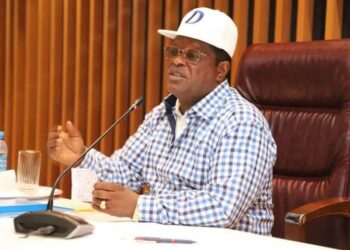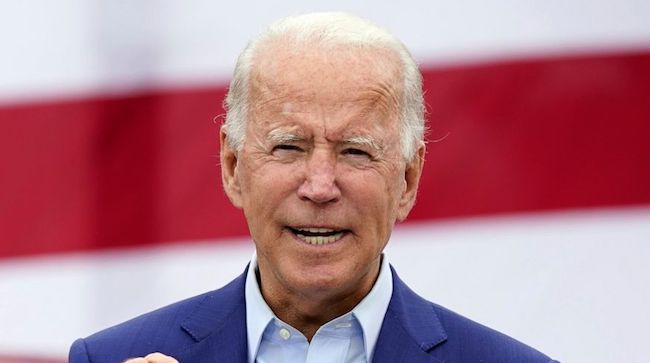
… Says Delay Hinders Pharmacy Training, Healthcare Quality In Nigeria
Lagos – The Pharmaceutical Society of Nigeria (PSN) has urged the Federal Ministry of Health to swiftly inaugurate and make the PCN Council functional, saying it has lacked an active chairman since a chairman designate was appointed on February 14, 2024.
The PSN stressed that it is crucial to fill the leadership gap to ensure the effective functioning of the Pharmaceutical Council of Nigeria (PCN), saying the absence of functional PCN is impacting pharmacy training and quality of healthcare.
Usifoh made the calls on Tuesday during a press briefing in Lagos was Prof. Cyril Odianose Usifoh, PSN president, who said the delay has hindered essential processes, including the accreditation of training facilities and the establishment of disciplinary procedures.
The press conference was to announce the 97th annual PSN National Conference, tagged ‘Ibom 2024’ will be taking place in Uyo, Akwa Ibom State where over 4,500 delegates and over 120 exhibitors are expected to participate.
Usifoh expressed concern over the lack of a functional Pharmacists Council of Nigeria (PCN), which has resulted in critical functions being left in limbo. This situation is significantly affecting pharmacy training programmes and, consequently, the overall quality of healthcare services across the nation. The PSN boss emphasised the urgent need for the restoration of the PCN to ensure that pharmacy education and healthcare delivery can meet the necessary standards for the benefit of the public.
“The absence of a functional PCN has left critical functions in limbo, impacting pharmacy training and, by extension, the quality of healthcare services in Nigeria,” Usifoh said.
He called on the Ministry of Health to collaborate with the Ministry of Justice to expedite waivers that would enable the council to operate and enforce the PCN Act 2022, especially in regulating pharmaceutical practices.
“We find it imperative to declare that fundamental processes inherent to the sustenance of order have continued to suffer in our profession because of the formalities attached to the appointment of the chairman of PCN, who is the only official of the PCN so appointed as all other members of the PCN are statutorily inclined and are therefore in place.
“It is important to stress that accreditation of training facilities from the University to Schools of Technologies is stalled in the absence of the PCN. The fundamental aspect of disciplinary procedures is also completely negated as both the investigating panel and disciplinary tribunal of the PCN cannot be constituted with dire consequences for consumers of health in our country.
“We must draw the attention of the Federal Government to the fact that The PCN Act 2022 was a product of wide spectrum consultation driven by the Nigerian Law Reform Commission which lingered for years.
“It is, therefore, logical to imagine the pain of our members when the bureaucracy appears to continue to constitute hue barriers against the expected actionable provisions of the PCN Act 2022. We have come to a point where we can no longer delay the swift accreditation of training facilities and the disciplinary process of PCN.
“This therefore compels us to ask the Federal Ministry of Health to extend immediate waivers after due consultations with the Ministry of Justice to allow the appointed Chairman of PCN and some of the statutory members to initiate necessary action in the area of setting up the Investigating Panel and Disciplinary Tribunal of the PCN Act to redress urgent and pending violations of the PCN Act 2022 by some Pharmaceutical Companies and other persons who tall under the purview of the PCN Act for regulation and control,” Usifoh said.
To address some of the challenges contributing to the high cost of medicines in the country, Usifoh also urged Federal and state governments to encourage local manufacturing of drugs for the sustainability of the pharmaceutical sector.
He pointed out that if drugs are produced locally, it will help lower the high cost of medications as well as help generate foreign exchange for the country.
According to Usifoh, “The desire to have our own local manufacturing environment is imperative for the sustainability of the pharmaceutical sector. If we don’t have local manufacturing, we’re going to have a lot of problems. In fact, the issue of drug security has become a big issue.”
The president of the PSN also noted that during the COVID-19 pandemic we were lucky, “but you observed that a time came when people would rather use what they possessed before exporting. That’s one of the things that encouraged me in terms of advocacy.”
According to Usifoh, when we start producing what we need at least, and become involved in improved local drug manufacturing, it’s going to help us a great deal.
“I must confess that if you visit some of the West African countries, it’s cheaper for them to get their drugs from Nigeria than to get them from France. And so, we must also leverage on that and see how we can help ourselves,” he said.
The PSN boss however noted that the government has a major role to play: the first thing is to make sure that the foreign exchange is stable if that can happen. Then the government has to make sure the issue of energy is properly addressed to be able to complement this local drug manufacturing effort.
If these things are properly done, the president of PSN said these factors can reduce the price of drugs, adding that It is an ongoing thing.
Addressing the challenges faced by public sector pharmacists, the PSN President expressed concerns over a potential strike by the Joint Health Sector Unions (JOHESU). Prof. Usifoh urged the Federal Government to honor existing agreements, specifically those related to the adjustment of the Consolidated Health Salary Structure (CONHESS), as well as to fully implement the Consultant Pharmacist cadre across federal health institutions.
Prof. Usifoh highlighted several demands from the PSN, including: Immediate implementation of the adjusted CONHESS, in line with the adjustments previously applied to the Consolidated Medical Salary Structure (CONMESS); Enforcement of government circulars mandating the establishment of the Consultant Pharmacist cadre; Payment of outstanding wages for workers in professional regulatory councils, pending for 10 months and suspension of the Drug Revolving Fund Standard Operating Procedure (DRF SOP) introduced by the Federal Ministry of Health, which he argued infringes on the operational autonomy of pharmacists.
Prof. Usifoh called for timely and meaningful negotiations between the government and JOHESU to avoid potential industrial action that could disrupt healthcare services across the country.
Prof. Usifoh announced the upcoming 97th Annual National Conference, themed “Ibom 2024,” which will be held in Uyo, Akwa Ibom State. The conference, he said, is set to foster collaboration and unity within the pharmacy profession and will mark a new chapter with the election of a new president and other NEC members.
He said, “ Distinguished Colleagues, three years ago, you gave me an overwhelming mandate to steer the ship of this great Society. I, therefore, geared up toward achieving the vision of bequeathing a united and progressive Society where Pharmacists are increasingly relevant, respected, and adequately remunerated for valuable services while collaboratively partnering with the healthcare team for optimal health outcomes as well as the growth and development of Nigeria. We may not have completely solved all the problems bedeviling our profession, but we have created a clear and visible pathway for our successors to take us to our promised land.
“In pursuance of our robust agenda for a magnificent boom in Pharmacy practice, the theme. Transforming Pharmaceutical Innovations to Facilitate Equitable Healthcare in An Emerging Economy,” was chosen for this conference.
“We are most delighted that the Co-ordinating Minister of Health and Social Welfare, Prof. Muhammad Ali Pate, a globally acclaimed leader in Public Health, has been saddled to give us insights that will broaden our horizon on how this agenda will translate to desired health outcomes for Nigerians as the keynote speaker. This conference will produce a new President and some other members of NEC since it’s an election year.”
Reflecting on his tenure, Prof. Usifoh expressed gratitude to PSN members for their support, underscoring achievements made in advancing the profession. “We may not have completely solved all challenges, but we have laid a visible pathway for our successors to follow,” he stated.
On her part, the chairperson of the Conference Planning Committee, Dr. Monica Hemben Eimunjeze disclosed that 4,500 delegates and over 120 exhibitors are expected at the conference where elections are also expected to be held to replace the outgoing PSN executives.
The theme of the conference is ‘Transforming Pharmaceutical innovations to Facilitate Equitable Healthcare in an Emerging Economy’.
According to Eimunjeze, the opening ceremony is scheduled for Tuesday November 5 and the activities will begin with a health walk. Other dignitaries expected at the conference include the Akwa Ibom state Governor, the minister of health and social welfare, Prof Muhammad Ali Pate, the Obi of Onitsha, among others.
She stated that the events have been particularly packaged to guarantee knowledge enhancement, networking and relaxation for all delegates.

 2 hours ago
5
2 hours ago
5







